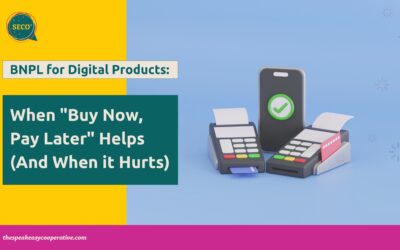It’s May 2021, and for some of the world, it seems as though we are “done” with COVID, and “ready to get back into the studio with real, live people. Problem is, some of us don’t want to go back in-person, now, or ever again. If you’re in that boat, I’d like to share with you some considerations on how to transition to an online-only voice business.
Depending on how effectively you were able to deliver your service over the last year, this may or may not be a lot of decision-making and changing. I find that many people have to reframe what they are used to doing and being in order to be successful at this transition.
Over the next several weeks, I’ll be giving itty bitty bites of info on each of the concepts noted below in the bullet list. My hope is that you’ll have some time to chew on each concept and gain some headway in how you approach your transition!
These blogs will not be a “this is exactly what you should do” checklist. Think of them more as “here are some things to consider as you move forward”, because essentially, you are opening a new type of business.
When you choose to remain as an “online-only” voice business, you’ll want to reframe your mindset around a few things we cover in this 5 Part Series:
Shall we begin? Today, let’s talk about:
Reframing Your Offer
An online lesson is a different service (or even product) than an in-person lesson.
While online lessons quickly became a replacement for in-person lessons, last year, it’s important to note that it wasn’t ever designed to be a replacement in the first place, and it’s not going to stay that way. We needed to believe that they *were* a replacement, to some extent, to get an entire industry online in a matter of weeks. We do what we must.
You may know that I’ve been teaching online since well before 2020, and I was always fascinated by the vitriol that would come up around this conversation.
While for my own good healing, I’d love to screenshot all the asshat comments that were made to me from 2014-2020, when I began to be a loud supporter of online lessons, I think there are better uses of your time. (It makes me feel better just to have told you that people were ASSHOLES about it.)
It IS important to note though, that many of the comments came from the place of erroneously thinking that online lesson experiences were a 1:1 replacement for the in-person lesson experiences. This misunderstanding lies in the idea that the vehicle in which results are seen is equivalent to the results themselves. Which we now all finally know – for many people – is patently false.*
Fast forward to 2020: even as some struggled with the new format, new technology, and new way to interact with the student, they are now finding ease and flow.
It’s about delivering results in a different modality – and that is going to take a different pedagogy, different equipment, and new understandings of what can be accomplished in the new modality.
In order to effectively remain as an online studio, you’re mindset will need to shift from the idea that in-person lessons and online lessons hold the same space in the market. They do not.
If you are a person who was primarily teaching in-person and transitioned to online just because of COVID, and now want to stay online, check-in with your client base, and see who was simply “holding out for you to return in person”.
Now is the time where you will learn that if you promoted the idea that you were “holding on for dear life” or “until we can come back” near the beginning (or still), you’ve got a mountain to climb over that old message. If you gave people hope around this, they are most likely still operating under an assumption that you desire to return to in-person teaching.
If you have a lot of these people, then it’s time to make a decision.
Will you woo these people unto thee by learning what they do not like about online lessons, and making their online lesson experience STELLAR, or, will you release them and begin to market to a client that wants online lessons in the first place?
Once you’ve made that decision, you’ll have a good idea of where you need to start with the bones of your offer(s) and how to talk about them.
Are you convincing people to your side? If so, you’ll need to address any obstacles that have arisen. You may find that you can make your online lessons better with something as simple as adding in asynchronistic options, or having a software that makes the experience more pleasureable.
Are you marketing to people who already want online lessons? If so, you’ll need to showcase how your online services are packaged, delivered, and sold, and how your version of that fits the needs of the client. (Sounds like in-person, huh?)
What about you? Are you staying online? How are you thinking through your offers?
Leave me a comment and let me know! And come back next week for “Your Business Delivery Model” (which is basically how you’re gonna frame your offer.)
All the BeastyBoss,

*Not every teacher was able to effective provide value transitioning to an online modality. This doesn’t make them bad teachers. There’s a whole new set of rules, and I simply intended to acknowledge that this isn’t for everyone and that’s okay.






Hi
This was really interesting to read. I enjoy teaching online and will continue with that. One reason for that is that I am moving back to Norway from Virginia where I have been teaching 10 students in person until COVID. Five of the students wants to continue with online lessons when I move.
I would really like to expand my business with more online students.
I do need to get a better software for singing!
Thanks wonderful, Helene! I’m
Excited for you!!